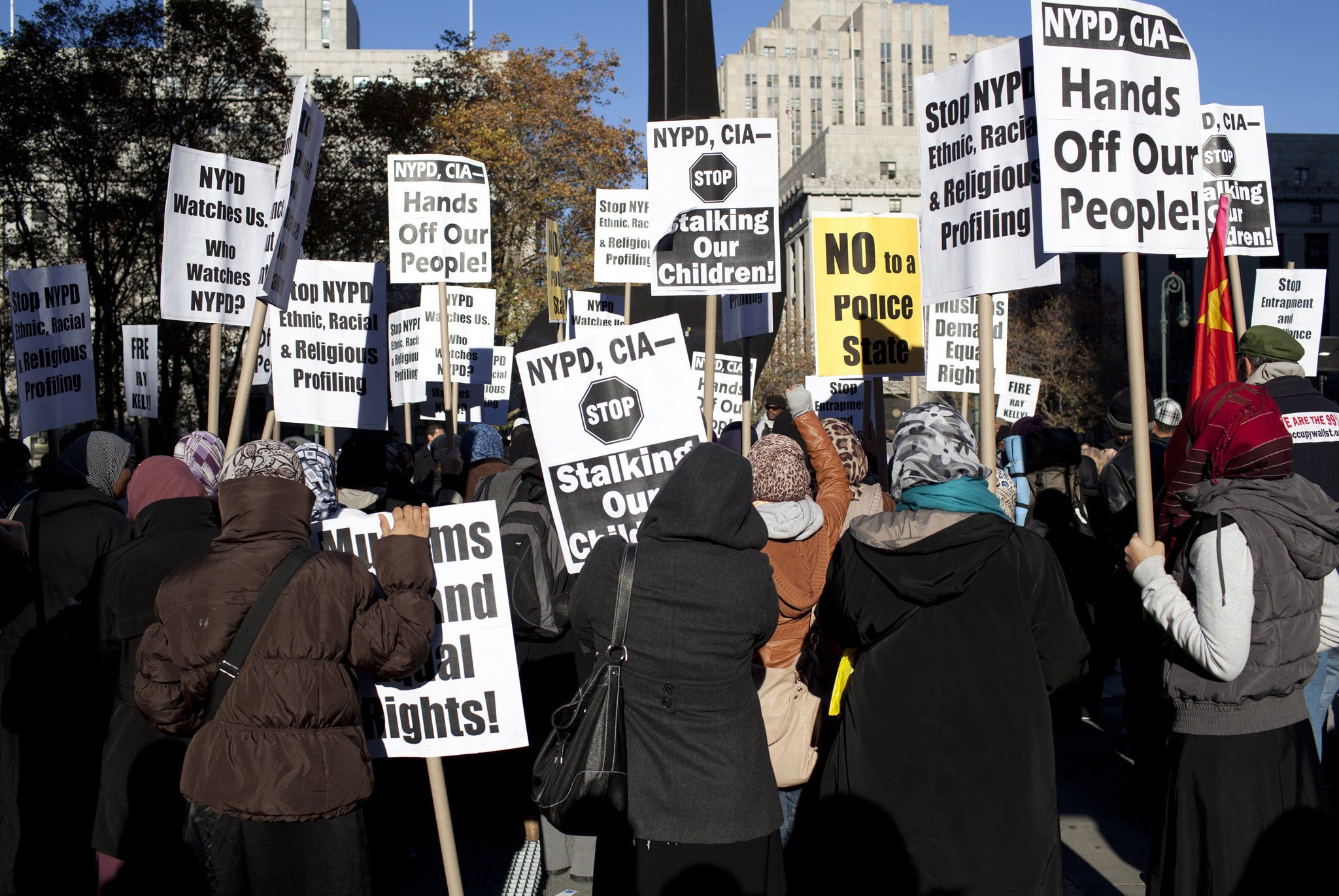The Muslims are Coming! by Arun Kundnani, book review: Nothing to fear but Islam itself
9/11 has produced myriad consequences, the most obvious being the dispiriting negativity levelled at the West's peace-desiring Muslims

Arun Kundnani, now a professor at New York University, used to edit Race and Class, the quarterly house journal of the Institute of Race Relations (IRR).
For over 40 years the IRR has archived black history, documented and protested against British racism, analysed politics, empire and globalisation. Many of us who became resolute egalitarians were awakened and inspired by the Institute's intellectual activist, A Sivanandan (Siva), now in his eighties. Kundnani, his young disciple, has taken up IRR causes with renewed vigour as they become ever more pressing and concomitantly deeply unpopular.
In our times anti-racism ( aka "political correctness gone mad") has been expelled from public discourse and critics of capitalism are considered mad, bad or dangerous. In The End of Tolerance: Racism in the 21st Century (2007) Kundnani broke these sanctions. His template was stridently post-colonial, his politics boldly left wing. It was a well evidenced, powerful study; a classic. This one is equally well researched and written, but much less persuasive.
The topic is vital; burning. Since 9/11, Muslims have had to pay over and over for crimes committed by fanatic Islamist militants. Our human rights have been snatched; we are watched, hundreds of thousands of our people tortured and murdered by western states or their Muslim stooges. In the "war on terror" anything goes. Kundnani exposes official duplicities and authorised illegal practices including intimidation, the use of agent provocateurs and extra-judicial killings. He tells the stories of the unheard and unseen. Shamuir Rahman, 19, for example, was recruited by the NYPD to push young Muslims into making inflammatory anti-American statements, part of the force's 'create and capture' strategy; Imam Luqman, suspected of advocating insurrections was not tried but shot dead by FBI agents in Detroit. This is the new wild west, cowboy justice. The UK incarcerates Muslims without any legal process. They, the unnamed, are in a black hole, and don't know if or when they will be charged or released.
Facts and figures in the book scythe through presumptions and prejudices. I didn't know that murders in the last decade by the far right exceed those by Jihadis. Or that Republican congressman Peter King who summoned US Muslims to McCarthy-type hearings, was a keen and shouty fundraiser for the IRA in the 1980s.
The author also scrutinises various anti-radicalisation government initiatives: some laughable, some Kafkaesque, others reminiscent of Maoist re-education programmes. With so many books written by liberals and Neocons on the "Muslim peril", it is a relief to have an intelligent counter-narrative: "One of the key arguments of this book is that to comprehend the causes of so-called jihadist terrorism, we need to pay as much attention to Western state violence and the identity politics that sustains it, as we do to Islamicist ideology. What governments call extremism is to a large degree a product of their own wars."
However, although many of his arguments and details are incontrovertible, I can't go all the way with Kundnani's conclusions and rationales. Some claims are simply ideological chants or fixations and careless connections are made. The book shifts blithely between Britain and the US. They may be deep allies, but they have different histories and values. From the age of exploration, the UK has had contact with Muslims, for better and worse. Americans, even now, are clueless about the Muslim nations, Islam and its adherents. Also problematic is Kundnani's post-colonial, anti-capitalist framework, which cannot fully explain the traumas of Muslims worldwide. (By the way, Prophet Mohammed worked for his merchant wife, a capitalist). Their aspirations and lives are shattered by "Islamaphobia", occidental domination, aggression and interventions and also corrupt Muslim politicians, low education and technological attainments, rejection of modernity and Saudi Arabia and the Gulf states which systematically spread hardline, anti-female, Islamic Puritanism. Muslims are repressed by external and internal brute forces, turning some to rage and murder. Kundnani disregards inconvenient truths, is dismissive of psychological and social reasons for radicalisation, itself a "myth" in his eyes.
He is good on the socio-economic history of Muslims in Britain: why they came, the jobs they took up, unemployment, racism, resistance and deep disillusionment. But doesn't explain why other minorities who have the same troubled history have not become brutal avengers. The murder of Stephen Lawrence is brought in for reasons that are not clear. So too, an attack in 2000 on two Asian brothers at a nightclub in Leeds. Two Leeds United footballers were accused, one convicted but not jailed. We know people of colour are subjected to racist attacks but can't be sure that religious hatred led to the assaults on the brothers. Is Kundnani saying Muslims face different or the same dangers as other black and Asian people in Britain?
If Muslims face particular hatreds – which I believe many do – the author needed to focus on those and leave out the victimisation of non-Muslims or explain better than he does, how they fit into his analysis of "Islamaphobia" which means the fear and loathing of Muslims.
In my view then, this is a gripping exposition of how the west has made a post-communist enemy and, in some ways, ignited Islamicist terrorism. But Muslims are not simply put upon. They have agency and some spread evil. To complete the story you will have to read the feminist Egyptian writer Nawal el-Saadawi or Samir Kassir, friend of Robert Fisk, the Lebanese author of Being Arab. Kassir was blown up not by Western assassins but by Arab brothers for being honest.
Subscribe to Independent Premium to bookmark this article
Want to bookmark your favourite articles and stories to read or reference later? Start your Independent Premium subscription today.

Join our commenting forum
Join thought-provoking conversations, follow other Independent readers and see their replies